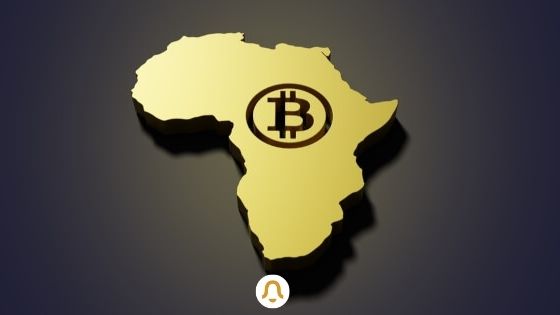Africa: what challenges does crypto currency represent for the continent? Chainalysis’ 2020 Geography of Cryptocurrency report gives Africa good marks in terms of cryptocurrency adoption.
Is Africa on the right track?
Chainalysis, a blockchain analysis specialist recently published a report on the integration of crypto currencies in Africa. As a reminder, this company is used to providing data, services, software, etc. to government agencies, stock exchange or insurance companies and financial institutions. Chainalysis is recognized by some fifty countries around the world at the time of writing.
The report in question highlights a booming Africa in terms of the adoption of this digital money. This is supported by figures regarding the share of services associated with this new form of currency in the region’s overall activity. A difference of 11 points is, in fact, noted: if this share was 67% in 2019, it was estimated at 78% in 2020.
The same document also speaks of Binance’s hegemony across the continent. This platform particularly meets the needs of Africans for remittances, despite the prevalence of retail transfers. It is not for nothing that Binance claims the title of “the largest crypto exchange in the world” if you take into account the volume of exchanges.
Are central banks endorsing the killjoy bib?
And yet, some banks see it differently. To name only the Central Bank of Nigeria, which ordered local banks not to provide any services to cryptocurrency providers until further notice.
A decision that was not unanimous among economic players in the region, apparently. It goes without saying that a large number of people reacted to similar decisions. By tweeting, crypto enthusiasts deplored this one-sided attitude of banking institutions. Because when the accounts were closed, many of them were struggling to recover their assets. And there is also the fact that the money earned before this famous blockade would have been used to overcome the crises linked to the Covid pandemic.
Several platforms such as Peabase and Quidax have suffered the full brunt of the consequences of the resolutions of certain African central banks. Quidax, a platform favorable to the purchase and sale of crypto currencies, complained on this subject. For its CEO and co-founder Buchi Okoro, this cold shower comes just as Africa is starting to take off. The volumes produced by Quidax in Nigeria were enormous at the time.
Fortunately, Nigerians, closely followed by Kenyans, are proactive people. Forced to abandon the path of “global prosperity” based on cryptocurrency, they are now flocking to peer-to-peer (P2P) exchanges. A rather attractive and beneficial alternative at the level of certain actors, but which suffers from a real lack of regulation to the point of handicapping the continent.
A problem of lack of understanding of crypto in Africa
The good progress of the adoption of crypto currency in Africa is therefore the victim of restrictive measures taken by its central banks. But it is also worth mentioning the basic problems linked to electrification or even internet access throughout the continent.
This means that the financial culture of Africans is not in good shape for the moment. The accumulation of wealth in this region would not be reduced to basic activities like investing in real estate or in stocks. It is difficult to understand how the local billionaires managed to become what they are now.
This constant problem of the circulation of information worries several actors from the African crypto sphere. They even go so far as to point the finger at a certain form of slowness in the delivery of data relating to decentralized finance and crypto currencies to young people.
Added to these obstacles is the problem of translating concepts. Without this effort, no success is to be expected in a continent where languages and dialects abound.
Your best bet would be to start launching a massive material translation campaign, says Roselyne Wanjiru, director of user growth and acquisition at Pesabase. This will result in better understanding among the elderly, novices and people living outside the urban areas of Africa.
- What is Ethereum (ETH), Ethereum Classic (ETC) and Ether?
- After Huobi and Gate.io, KuCoin in turn expels Chinese users
- Reasons for the Growth of the Lightning Network
Regulations and a healthy dose of trust required
The issue of regulation is at the center of issues of the integration of crypto currencies in Africa. In the absence of an adequate regulatory framework, investing activities across the continent would present a high risk rate. Bankruptcies will subsequently become inevitable to the point of sanctioning several players from the sector.
This is why several heads of platforms in office keep alerting local authorities to this defect. As the regulations imposed by the banks are insufficient, we might as well advance more solid systems than the usual transaction limits or minimum capital imposition.
From these regulations will emerge confidence, an essential element for the success of cryptocurrency in African lands. When it is there, African curiosity quickly gives way to application. Which requires more consistency from the crypto industries.
The success of a cryptocurrency exchange in Africa should not only be measured by the number of purchases or the download of the application or the number of registrations. Patience is also a quality that should not be minimized during the launch phase. It should also be coupled with a desire for presence and consistency among project promoters. By adopting this attitude, it is easy to gain the trust of Africans.
The report issued by Chainalysis reflects a startup of the crypto sector in Africa. Admittedly, the current data seem insufficient to proclaim an unexpected situation in the continent. However, many are the actors and promoters of investment projects who do not give up. And even if other factors such as economic instability can put a damper in their wheels, time is, for them, to work and to build the confidence of the users of crypto currencies.


